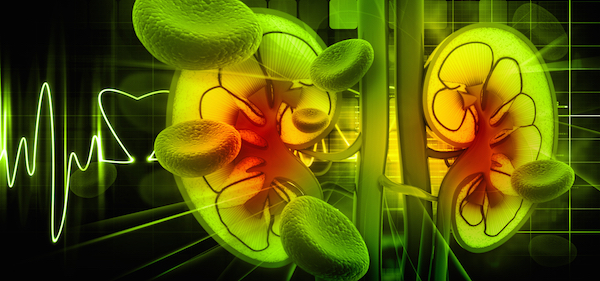Healthy kidneys are vital to our wellbeing. But do you know what these organs do and how they can affect your health if they’re not functioning properly?
The kidneys are the body’s very own waste recycling centre, with the blood supply being filtered through these organs 12 times an hour. The kidneys also play a role in the production and regulation of several important hormones and enzymes, which help to:
- control blood pressure
- make red blood cells
- maintain strong and healthy bones
Therefore, looking after your kidneys, even though you have two of them, is incredibly important.
What can affect your kidney function?
Diabetes, which is the result of the body not producing enough insulin or not using insulin efficiently, is the leading cause of kidney disease. One-third of people who require dialysis (flushing of the kidneys via a machine) or a kidney transplant also have diabetes.
High blood pressure can put stress on the body’s blood vessels, including the kidney filters.
Smoking damages the kidneys by hardening the arteries and changing the way in which the blood is circulated through the kidneys. Smokers are three times more likely than non-smokers to have reduced kidney function.
Cardiovascular disease, such as stroke, heart attack or heart failure significantly increases your risk of kidney disease.
Being obese, i.e. having a BMI of over 30, increases your risk of developing kidney disease.
Family history can also have an effect on your kidney function.
What happens if your kidneys fail?
Kidney failure, i.e. when your kidneys can’t process waste from the blood and control the fluid in your body, will result in dialysis or a transplant. You can lose up to 90 per cent of your kidney function before you feel sick, by which time it’s often too late to reverse the damage.
What symptoms accompany kidney disease?
The following symptoms can indicate that you are experiencing kidney failure, however, they can also be indications of other medical issues. If you experience several of them at any one time, you should consult your GP.
- tiredness
- loss of appetite
- difficulty sleeping
- headaches
- lack of concentration
- shortness of breath
- nausea and vomiting
- changes in the amount and number of times you need to pee
- changes in the appearance of urine, or if there’s blood in your urine
- puffiness in the legs and ankles
- pain in the kidney area.
To find out more about kidney health and kidney failure, visit www.kidney.org.au.

